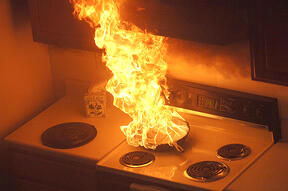
As restoration contractors, we see hundreds of home disasters every year. But the one that has the most dramatic and devastating impact on families and homeowners is a house fire.
The reason household fires are so devastating, apart from the damage to property and belongings, is that most of them are preventable. This article briefly covers the most common causes of household fires and possible ways to prevent them from happening to you.
COOKING
Cooking is the number one cause of all household fires. These fires are usually caused by leaving the stovetop or oven unattended while something is cooking, or from careless use of flammable cooking oils and grease.
Prevention: Never leave your home when something is cooking, no matter how long the dish will take to cook. There is always a chance that you could be delayed longer than expected, and by the time you get home, it’s too late. Also, never take a nap while something is simmering on the stove, or perform tasks around the home that will take you out of the kitchen for more than a few minutes. When preparing slow-cooked foods, set a timer every 15-30 minutes to remind you to check the oven or slow cooker. It doesn’t take long for a pot to over-boil and start a fire.
If you experience a grease fire, don’t panic. You can extinguish it easily by placing a lid over the flaming pan and turning off the heat. Do not use baking soda, flour or salt to extinguish the flames. This can cause the fire to flare up and burn you. It may also splash the burning grease onto towels, curtains, or other flammable materials nearby.
Never let children be in the kitchen unsupervised while your cooking, especially those that are too young to understand the fire dangers and risks involved with cooking.
SMOKING
Some of the deadliest fires are caused by the careless use of cigarettes, pipes and cigars. Most fires caused from smoking are usually the result of a smoker falling asleep and dropping their cigarette onto the floor or furniture, or leaving an unattended cigarette in an ashtray that falls onto a tabletop.
Prevention: Always make sure that the butts in an ashtray are completely extinguished before dumping it into the trash. Running water into the ashtray is the best method to put out any smoldering embers.
Never smoke in bed, especially if you have been drinking alcohol. Always extinguish smoking materials completely. If you have to smoke, try to smoke outside or in areas of the home where there are no flammable materials.
CLOTHES DRYERS
There are more than 14,000 clothes-dryer fires each year. The number one cause of clothes dryer fires is due to lack of maintenance and proper cleaning. Another cause is stacking laundry or storing combustibles near the dryer, especially around gas dryers that have open flames.
Prevention: Clean the dryer filter after every use. At least once every year, detach the exhaust hose from the back of the dryer and clean it thoroughly, or replace it if it has significant lint build-up that is difficult to remove. Keep combustible materials at least three to four feet away from any heat-generating equipment, including dryers, portable heaters, furnaces, and water heaters.
CANDLES
Candles cause more than 12,000 household fires annually. About half of those fires start in bedrooms. A burning candle can easily fall over and set fire to furniture, curtains, carpets or other combustible materials.
Prevention: Only burn candles in sturdy holders that won't tip over. Never assume that a candle in a glass container is safe. The glass may over-heat and shatter, spreading the hot wax and flame. When burning candles, always make sure the surrounding area is clear from flammable objects. Place the candle away from high traffic areas, but in plain sight. Never leave burning candles unattended and blow out candles before leaving the room, leaving the home, or going to sleep.
ELECTRICAL WIRING AND APPLIANCES
Most people assume electrical fires are caused by faulty wiring inside the walls of a home. While this is a common cause, most electrical fires are caused by wiring attached to household appliances. The most common cause resulting from too many appliances or electrical devices plugged into a single outlet, causing the wires to overheat and spark a fire.
Prevention: Only use one extension cord per outlet. Only use extension cords that have a UL listed label attached to them. When using power tools or appliances, check the operating manual for the proper extension cord size to use with the device.
Never run an extension cord under a rug or carpet. Wear and tear from normal traffic can damage the protective coating, exposing the bare wire and cause them to spark.
Do not use any old or suspect appliances. Do not use a malfunctioning electrical appliance. Sparks, noises, and odd smells are danger signs, and it should be repaired or replaced immediately. Always unplug appliances when they are not in use.
Never ignore any unusual activity related to the main power supply. Any flicker, fuse blowout, or sudden circuit breaker effect can be a major concern. Even a leaky pipe in the wall can saturate internal wiring and cause a fire. Be cautious, and call an electrician to inspect it.
FLAMMABLE LIQUIDS
Many people don’t realize that gasoline fumes are more combustible than the gasoline itself. Gasoline vapors can be ignited by a flame that is several feet away from the actual fuel container.
Prevention: Never store flammable liquids, such as gasoline, paint thinner or kerosene inside the home. These liquids should be stored out of doors in a protective building with adequate ventilation and low to moderate temperature levels.
Gasoline and other flammable products, such as paint thinner, should never be kept inside the house. Only use flammable liquids and fuels for their intended purposes. Never use gasoline as a cleaning agent.
Place rags that have been saturated with a flammable liquid in a metal container with a tight-fitting lid before throwing them away. A pile of flammable rags placed inside a garbage bag can ignite by themselves.
If you absolutely have to use any type of flammable fuel or cleaning agent inside the home, open doors and windows to ventilate the room and dissipate the fumes.
Always be sure your smoke detectors are in working order, and replace the batteries at least every six months. You should also have fire extinguishers in or near every room in your home that is susceptible to fire risk, such as kitchen, laundry, basement, garage, etc.


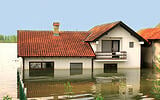
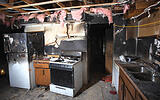
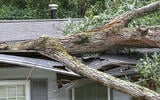

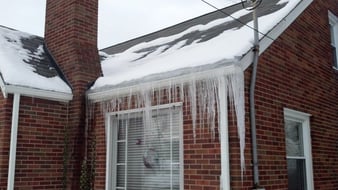 With the arrival of fall, and winter just around the corner, now is a good time to take measures to protect your home from the ravages of the bad weather to come. Wind, hail, heavy rain, snow, and ice are the most common causes of property damage to homes and businesses.
With the arrival of fall, and winter just around the corner, now is a good time to take measures to protect your home from the ravages of the bad weather to come. Wind, hail, heavy rain, snow, and ice are the most common causes of property damage to homes and businesses.
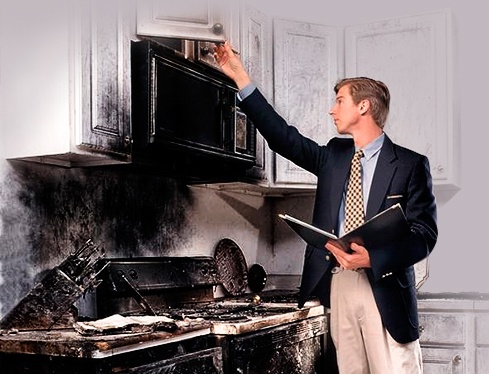 The property insurance claims process can be confusing and challenging, but it doesn’t have to be. The best way to prepare yourself for filing a property insurance claim is to know and understand your homeowner’s insurance policy.
The property insurance claims process can be confusing and challenging, but it doesn’t have to be. The best way to prepare yourself for filing a property insurance claim is to know and understand your homeowner’s insurance policy.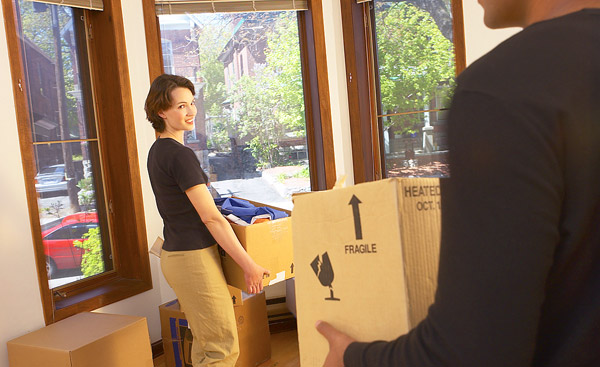 Depending on the size and scope of the damage, it may be necessary for you to make new living arrangements after a disaster strikes your home.
Depending on the size and scope of the damage, it may be necessary for you to make new living arrangements after a disaster strikes your home.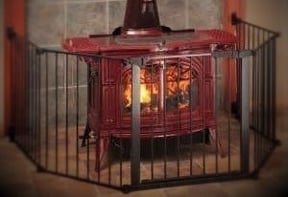 As we head into Fall, it’s important to get prepared for cooler weather and a large part of that is fire prevention. A fire is a dangerous and scary experience that not only causes damage and property loss, but can also endanger the lives of your loved ones.
As we head into Fall, it’s important to get prepared for cooler weather and a large part of that is fire prevention. A fire is a dangerous and scary experience that not only causes damage and property loss, but can also endanger the lives of your loved ones.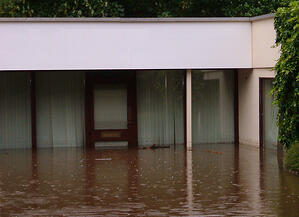 Michigan isn’t known for being at high-risk of disastrous flooding caused by heavy rains. But last August, Detroit experienced a record rainfall of 4.57 inches in one day. Some communities received more than 6 inches of rain. This unusual event was considered by many to be a 100-year flood, especially since the last rainfall of this magnitude occurred back in 1925. Detroit’s average rainfall for all of August is only 3 inches.
Michigan isn’t known for being at high-risk of disastrous flooding caused by heavy rains. But last August, Detroit experienced a record rainfall of 4.57 inches in one day. Some communities received more than 6 inches of rain. This unusual event was considered by many to be a 100-year flood, especially since the last rainfall of this magnitude occurred back in 1925. Detroit’s average rainfall for all of August is only 3 inches.
 As restoration contractors, we see hundreds of home disasters every year. But the one that has the most dramatic and devastating impact on families and homeowners is a house fire.
As restoration contractors, we see hundreds of home disasters every year. But the one that has the most dramatic and devastating impact on families and homeowners is a house fire.
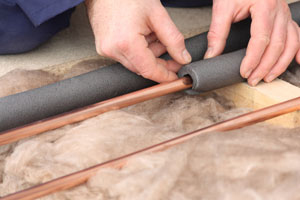 Frozen pipes are one of the most common and costliest property damage events during the cold winter months. In fact, a burst pipe can result in tens of thousands of dollars in damage. Fortunately, frozen pipes can be prevented quite easily and inexpensively.
Frozen pipes are one of the most common and costliest property damage events during the cold winter months. In fact, a burst pipe can result in tens of thousands of dollars in damage. Fortunately, frozen pipes can be prevented quite easily and inexpensively.
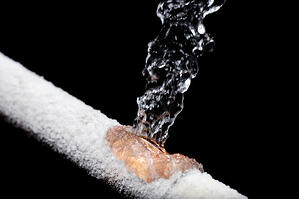 How do Pipes Burst?
How do Pipes Burst?
